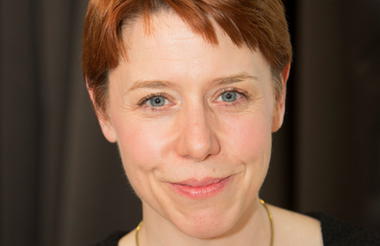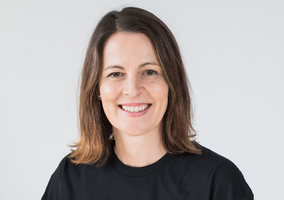Kirsty McHugh took up the helm at Carers Trust in early 2022, having spent much of her career in membership and network organisations – she has worked for and run about seven of them. Having previously been an unpaid carer, she is also clear that the UK is dependent on an estimated 7 million unpaid carers. Indeed, one in three people are likely to become an unpaid carer at some point in their lifetime.
If you are in that position “you have to navigate through quite a distressingly complicated array of systems, some of which are going to be third sector, some of which are public sector”, McHugh says.
Nonetheless, many people don't understand the term unpaid carer, and may not even realise that they are one themselves. “It’s just something that they do, it's part of their day to day,” she says.
“One of our big strategic objectives is to help people to identify as an unpaid carer and then take action to help them to get the support they need. Not all carers are equal, of course, and income is a big part of it.
“Without unpaid carers, the health and social care system in the country would fall apart, and yet, they're not really on the government's agenda. There's a simple reason for that; they don't walk away, they don’t go on strike – you don't stop looking after your old mum, or your disabled child, or your partner with dementia – you don’t do it, you keep going regardless of the cost to you, and therefore it is very easy to take unpaid carers for granted.”
‘An organisation is never the way you think it is going to be’
McHugh, who was the first in her family to go to university, left “without a clue” about what she was going to do and “one thing led to another” which brought her to the sector. This was partially fuelled by her interest in infrastructure systems, though there “definitely wasn't any clear game plan” behind her career.
On applying to the Carers Trust, McHugh was drawn to the fact that it was a membership organisation, “but also the mission” and having “local care organisations at our heart”.
“I'm not a health and social care expert, that isn't my background, but I do have quite a good grasp in terms of how organisations work together cross-sector at a local level”.
“This is my third CEO job, and it is definitely different going into an organisation where everybody's working in a hybrid fashion. You really can't underestimate the challenges of getting your arms around an organisation under those circumstances, compared to predecessor roles. But I've also learned that an organisation is never the way you think it is going to be.”
McHugh says that when applying her current role, she had an idea of what the challenges would be and what she wanted to achieve “and then you get into the role and you realise it's a little bit different – you just have to, as a leader, accept that”.
In her first few months, she has focused on the charity’s strategy and “getting a lot of the basics right” such as business planning, corporate delivery, people and risk.
Local organisations at ‘the heart of what we do’
McHugh is looking at network growth, and says: “We are a dual impact charity. We are interested in the infrastructure of local care services, as well as unpaid carers themselves, because one won’t thrive without the other.
“So, I really want to see growth in terms of the number of network partners that we're working with. I'm also really interested in how we support organisations outside the official partnership, so we are looking at what the offer might be there. We work, for instance, in mental health trusts. So, income diversification… More fee-based models, where we've got the expertise and knowledge etc – there's more than one way of increasing impact.”
Indeed, a big focus for McHugh is local partners, and the charity has been reviewing its membership value proposition. “If you're part of the Carers Trust network, what do you get? That needs to be based on what you need. And then it's about the communication and the engagement structures to make sure that we as the infrastructure body are knitted in and close to what those local organisations are about.
“It's a two-way flow of conversation, and about always evolving the offer. In terms of the strategy, we've moved those local care organisations to the heart of what we do.”
McHugh says her charity’s main aim is that every unpaid carer in the UK has access to a great local quality care organisation. Her charity’s second main aim is to ensure that no unpaid carer is pushed into poverty or financially disadvantaged by their caring role. The third is to support all unpaid carers to have a good, fulfilling life.
“That mission is shared by us at the centre, and by the local network partners in their localities too.”
The charity has faced increasing competition from digital-only solutions, which market themselves as being cheaper ways for local authorities to fulfil their duties under the Care Act.
McHugh says that while digital support for carers is important, it “needs to be balanced with the need for on the ground services”.
“A digital offer can't look after your mum overnight, or provide you with a social group or give you really any meaningful employability support, or help you as a young carer in terms of your mental health, and then help you to university.”
‘Concern over lack of social care reform’
The charity supported 917,000 unpaid carers last year and aims to increase this by more than 50% by 2025.
But McHugh says there are increasing levels of support that each unpaid carer needs. “Some at the edges just might need a little bit of advice and guidance, but then you have some at the heart who need a huge amount of support.”
She says the charity also aims to do “far more” campaigning. “We have our network of about 125 local carer organisations doing a lot of the delivery, and we have a lot of information on which to draw to inform the public policy and the campaigning work that we pursue.”
The charity wants to see an increase in government funding for social care services.
“It doesn't matter whether the conversation is with NHS England, the [health] department, the minister, or local authorities, by and large, we find that people want to do the right thing but the funding isn’t there.
“I am concerned that over the next couple of years, we're not going to get either big reform or a big influx of funds into the social care system, which means that more and more pressure is going to be loaded onto our unpaid carers.”
‘There is never room to be comfortable’
McHugh says she luckily inherited a charity in a decent place financially, though “there is never room to be comfortable” or complacent.
Carers Trust has some long-term partnerships which “is extremely helpful”, but the cost-of-living crisis has created additional pressure particularly around unpaid carers and its local care organisations.
McHugh says the local organisation face increased energy costs and are finding it difficult to recruit – “it's pretty tough running a small charity out there”.
As for carers themselves, their finances were already low due to most having to reduce their working hours but the energy crisis had added more pressure. “They have to have the heating on, they need to do the washing, and they may be at home far more because they're not out and about in the same way.”
Research from the charity shows that one in seven unpaid carers are using food banks. With carers’ allowance set at less than £70 a week, “we're talking about a lot of people in poverty”.
The charity finds “a very different package of support” available in Wales, Scotland and Northern Ireland compared to England.
Carers allowance is part of the benefits system in Scotland, explains McHugh, while in Wales, the devolved government has launched a £9m fund (£3m over three years) to support a right to a break for unpaid carers. Scotland has a similar fund, but there is no such fund in England.
‘Cost-of-living concern is open ended’
During the Covid pandemic, Carers Trust got some support from long-term funders and other organisations, including the government. But McHugh says cost-of-living support is “open-ended”.
“Like everybody else, we want to navigate our way through what I think is going to be a rocky couple of years financially for the entire country. We have a duty to make sure that Carers Trust is intact, and we are able to maximise the impact we have.
“We have some very supportive funders, but what we’re not seeing is huge uplifts at this point in time. The need is vast.”
Carers Trust’s “very good fundraising team” is focused on “expansion” and wants to grow the number of corporates, trusts and foundations with which the charity works.
Income for the main charity hovers around the £9m mark, though collectively the funding of all its network partners takes it into the hundreds of millions. Meanwhile, the charity makes grants of around £4m a year itself.
“One of the things that we are cognisant of, is the fact that our local network partners are also fundraising, and we are very careful not to tread on their toes… We don't want to cannibalise funding.
“We are having a conversation about being realistic about what the fundraising streams are which work best for us, and not trying to do things where we have not got a great position in the market.”
She says the charity is “not the highest profile organisation” but it is “at the beginning of” trying to boost its recognition.
“We do have access to the information, the case studies or stories locally, which will fuel media attention. I think it's about rooting this in what we are good at. What we're not going to be doing is investing in high profile television campaigns, we don't have the cash to do that and we would be competing against some very big brand names, which might not be the best use of our scarce resources.”
‘Avoid tick box exercises’
McHugh says the charity ensures that unpaid carers’ “voices are heard throughout the organisation”.
Carers Trust has been developing an unpaid carer involvement strategy and are also making sure young people’s voices as part of everything it does. “I think we're pretty good at it – but people are often time poor, and therefore, it’s about finding involvement strategies which work with the reality.”
McHugh says charities who have identified lack of voice as a problem should “do something” though make sure not to over promise. She adds “try and avoid the tick box type things – make it meaningful. It is better to have a smaller amount of involvement, meaningful involvement, rather than trying to boil the ocean at once.”
Carers Trust have also been working with an organisation who are anti-racism experts, to look at policies and practices. All staff and trustees have been through training in recent weeks “to make sure that we've got at least a common starting point”.
“My predecessor kicked off a stream of work around anti-racism, so I was able to pick something up and make sure that we have a good process in place in terms of our organisation.”
It has an internal working group, and is developing a roadmap specifically around anti-racism.
“We now need to finesse that, get that owned by trustees as well as staff, and then embed that into the organisation. The conversation then is around, how do we make sure that the momentum which is built over this period is sustained.
“We're a very flexible organisation generally, which is a good starting point, but I’m really pleased with the way that the staff have taken the anti-racism work stream to their heart and have really been motoring with it.”
McHugh said she had also brought through some “thought processes” from her previous role as chief executive of the Mayor’s Fund for London, a social mobility charity which focused on class.
“We did a lot of work with different sectors, property, creative industries, etc, about how do you actually recruit a diverse workforce. What's really interesting is quite often those sectors were focused on race and ethnicity, they wanted visible diversity. But actually, it was socio-economic, and if you've got that bit right, because it was London, the correlation with some ethnicities was quite high.”
McHugh says diversity is different across different areas of the sector. “Fundraising doesn’t tend to be very diverse, policy and campaigning doesn’t seem to be very diverse either, but some of the operational elements are.”
She says a focus is making sure that “what we're doing in one part of the organisation, which is working well, is then utilised by others”.
Related Articles












